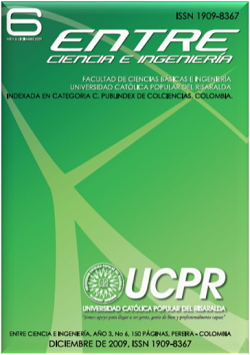El Acompañamiento Como Estrategia Pedagógica En El Aprendizaje Exitoso De Las Matemáticas
Keywords:
learning accompaniment, math learning, learning monitoringAbstract
We introduce a systematic experience of math learning accompaniment with college engineering students. The origin, formalization and systematization of the experience are described. Its pedagogical function is assessed based on student attendance, percentage of course promotion, user attitude and the effect of the attendance and graded academic work on the student achievement on evaluation tests. Data collected from three different stages, prove to be a pedagogical strategy with positive results for students as well as for professors, what could be
improved by means of analyzing the social networks built, introducing better monitoring tools and integrating effective learning strategies.
References
Anderson, D. H. ; Munk, J.A.H.; Young, R.; Conley, L.; Caldarell, P.(2008). Teaching Organizational Skills to Promote Academic Achievement in Behaviorall. Teaching Exceptional Children; Mar/Apr 2008; 40, 4; ProQuest Education Journals pg. 6
Anderson, M. L.; Perlis, D. R. (2005). Logic, Self-awareness and Selfimprovement: the Metacognitive Loop and the Problem of Brittleness. Journal of Logic and Computation;; 15, 1; ProQuest Science Journals pg. 21
Barrows H. S. (1985). How to design problem based curriculum for the preclinical years. New York: Springer.
Colfer, C. (2002). Learning to learn in community forests. Appropriate Technology; 29, 3; ABI/INFORM Global, pg. 48
Collin A Webster; Paul G Schempp (2008). Self-Monitoring: Demystifying the Wonder of Expert Teaching. Journal of Physical Education, Recreation & Dance; 79, 1; Academic Research Library, pg. 23
Douville, P. (2004). Use Mental Imagery Across the Curriculum. Preventing School Failure; 49, 1; Academic Research Library, pg. 36
Eades, C.; Moore, W.M. (2007). Ideas in Practice: Strategic Note Taking in Developmental Mathematics. Journal of Developmental Education; 31, 2; ProQuest Education Journals pg. 18
Foegen. A. (2008). ALGEBRA PROGRESS MONITORING AND INTERVENTIONS FOR STUDENTS WITH LEARNING DISABILITIES. Learning Disability Quarterly; 31, 2; ProQuest Education Journals, pg. 65
Goodnough, K. (2005) Fostering Teacher Learning through Collaborative Inquiry. The Clearing House; 79, 2; Academic Research Library pg. 88
Hall, J M.; Ponton, M.K. (2005). Mathematics Self-Efficacy of College Freshman. Journal of Developmental Education;; 28, 3; ProQuest Education Journals, pg. 26
Hallam, S. (2001). The development of metacognition in musicians: implications for education. B. J. Music Ed., 18:1, 27-39
Heaney, Liam F (1994). Continuous monitoring - An approach. The International Journal of Educational Management; 8, 2; ABI/INFORM Global, pg. 33
Helsel, L and Greenberg, D. (2007). Helping struggling writers succeed: A selfregulated strategy instruction program. The Reading Teacher Vol. 60, No. 8, 752- 761
Herman, M. (2007). What Students Choose to Do and Have to Say About Use of Multiple Representation in College Algebra. The Journal of Computers in Mathematics and Science Teaching;; 26, 1; Academic Research Library pg. 27
Maldonado, L. F. y Serrano, E. (2008). Construcción de una red de aprendizaje. Nómadas, Abril, No 28. Pg 211-222.








 Revista Entre Ciencia e Ingeniería
Revista Entre Ciencia e Ingeniería .png) entrecei@ucp.edu.co
entrecei@ucp.edu.co.png) ISSN (Impreso) 1909-8367 - ISSN (En Línea) 2539-4169
ISSN (Impreso) 1909-8367 - ISSN (En Línea) 2539-4169 Attribution-NonCommercial 4.0 International (CC By-NC 4.0)
Attribution-NonCommercial 4.0 International (CC By-NC 4.0)
.png) Carrera 21 No. 49-95 Av. de las Américas, Pereira, Risaralda, Colombia
Carrera 21 No. 49-95 Av. de las Américas, Pereira, Risaralda, Colombia